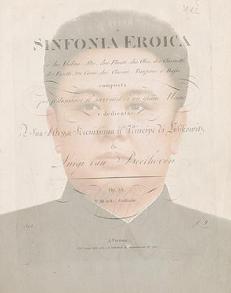| Sat. February 21, 2026 |
 |
|
||
|
||||
| ||||
 By Jens F. Laurson & George A. Pieler
By Jens F. Laurson & George A. Pieler
After the New York Philharmonic accepted an invitation from the North Korean Government to perform at the East Pyongyang Grand Theatre, there was a flurry of commentary condemning and praising the move: Was this a savvy act of cultural diplomacy, or merely a PR coup for one of the world’s worst tyrants?
When New York’s premiere orchestra takes to the stage on February 26, playing to a hall packed with the Politburo’s elite, it will, alas, be more of the latter than the former.
In the best tradition of U.S. cultural diplomacy, it showcases some of our best culture abroad, regardless whether to friend or foe. Sound enough, perhaps, but a likely failure because the New York Philharmonic is wasting a great opportunity to underpin its cultural message with a greater truth about the value of freedom.
Were the New York Philharmonic bringing its art to the people of the Democratic People’s Republic of North Korea, the adventure would recall the history of successful US Information Agency concerts in repressive nations. But the effect of spreading culture is lost without an audience actually made up of real people, not just a hand-picked crowd of the regime’s loyal henchmen.
And the concert in Pyongyang is everything but public. Most North Koreans are not permitted into the capitol city, much less the Grand Theatre. If admitted, it’s not likely they could purchase tickets. And if there were tickets for purchase, how would a regular North Korean (per capita GDP ~$1000,-) afford one?
The concert will be telecast worldwide, but not in North Korea where, in any case, the allocation of TV sets would assure that only the privileged and faithful few got to see it.
Instead, the North Korean people will get reports on how the New York Philharmonic, the greatest American orchestra (nothing compared to North Korea's State Symphony Orchestra, of course), serenaded their Dear Leader.
The concert opens with the two national anthems, under music director Lorin Maazel and continues with Dvorák’s Symphony No. 9, the Lohengrin Act III Prelude by Wagner, and Gershwin’s An American in Paris.
The underlying “American Diplomacy” in this program is obvious. The Dvorák and Gershwin are considered classic Americana, both premiered by the NYPO. It’s nice music that should be attractive to those having a first-time experience with Western classics. But in these circumstances, it risks being an inoffensive sham of a program, offering timid Amerikanisch repertoire while avoiding both serious American music, and serious American civic content.
The North Korean propaganda spin on this concert is not in the hands of the New York Philharmonic. But the impression made in concert is. That’s where the NYPO lets us down.
After North Korea so publicly courted the orchestra to perform in Pyongyang, the orchestra’s administration should have accepted on condition their repertoire be Beethoven's Third – “Eroica” – Symphony, followed by Shostakovich's Fourth Symphony. Then see if North Korea was still so keen on receiving the New York Philharmonic or if they feared the power of art.
What the works have in common is that they’re monuments against dictatorship. Beethoven dedicated his Third Symphony to Napoleon in the republican spirit still felt after the French Revolution. When Napoleon crowned himself Emperor, Beethoven was furious and scratched out Napoleon’s name so vigorously that he went right through the paper. He re-dedicated it to “The Memory of a Great Man.”
Dmitry Shostakovich was at the brink of dispatch to Stalin’s (artistic) Gulag because his music offended Stalin. After an ‘official’, public critique of his opera “Lady Macbeth of Mtsensk” as “petty-bourgeois”, and “formalist”, he withdrew his about-to-be-premiered Fourth Symphony and replaced it with the (superficially) conformist Fifth. A wise choice; the shrieks, brutality, and pounding relentlessness of the Fourth Symphony spell a blunt indictment of any crushing regime. It’s a work in which you don’t listen for the tunes like you might with Mozart. You get not unalloyed prettiness, but the 20th century at its artistically most potent and politically most repressed. Truly a message worth taking to Pyongyang.
Repertoire aside, this mission’s worst enemy might just be Lorin Maazel himself. Justifying his enthusiasm for the Pyongyang outing, he asks: “Is [the United States’] reputation all that clean when it comes to prisoners and the way they are treated? Have we set an example that should be emulated all over the world? If we can answer that question honestly, I think we can then stop being judgmental about the errors made by others.”
“Errors”? To equate the systematic suppression of a starving people for the benefit of one, with a freedom-loving democracy that errs on the side of security is shocking. If that’s how Maazel feels, there’s no cultural or diplomatic point to this trip, anyway. Perhaps the composer of the opera “1984” should re-visit his Orwell and learn about the not-so-fine distinction between a totalitarian state, and the regrettable abuse of actual, existing freedom.
As it is, it won’t matter. With Wagner, Dvorák, and Gershwin, the New York Philharmonic isn’t going for the “Jesse Owens Award” of sticking it to the tyrant.
Jens F. Laurson is the Editor-in-Chief of the International Affairs Forum and Classical Critic-at-Large for CLASSICAL WETA 90.9, Washington DC’s public radio station. George A. Pieler is a Senior Fellow with the Institute for Policy Innovation.
| Comments in Chronological order (0 total comments) | |
| Report Abuse |
| Contact Us | About Us | Donate | Terms & Conditions |
|
All Rights Reserved. Copyright 2002 - 2026